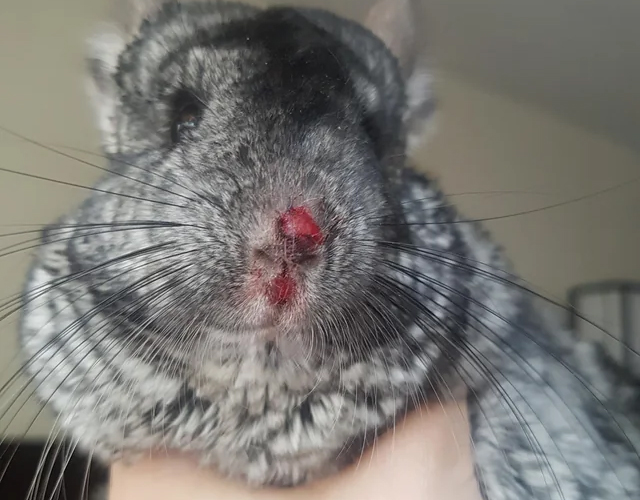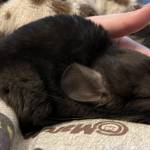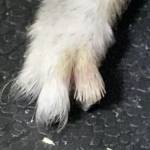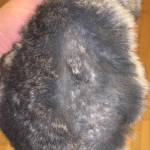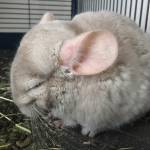Chinchillas are active and playful pets that love to run, jump, and explore their environment. However, accidents can happen, and your chinchilla may suffer from physical injuries at some point in their life. As a responsible owner, it’s essential to know how to recognize the signs of injury and how to provide the proper care and treatment to help your chinchilla recover. In this article, we’ll explore the most common types of physical injuries that chinchillas may experience, and we’ll provide you with the information you need to help your furry friend heal.
Types of Physical Injuries
– Broken Bones
Chinchillas have delicate and fragile bones, which makes them susceptible to fractures and breaks. The most common bones that are broken in chinchillas are the legs, particularly the femur bone. A broken bone can cause your chinchilla to experience pain, swelling, and difficulty moving. If you suspect that your chinchilla has a broken bone, it’s essential to seek veterinary attention immediately.
Treatment: The treatment for a broken bone will depend on the severity of the injury. In some cases, a splint or cast may be applied to immobilize the affected area. Pain medication may also be prescribed to manage discomfort during the healing process. Surgery may be necessary in severe cases to repair the broken bone.
– Tooth Problems
Chinchillas have open-rooted teeth, which means that their teeth continue to grow throughout their life. Dental problems can occur when their teeth become too long or misaligned, which can lead to pain, difficulty eating, and infections. In severe cases, dental issues can even lead to death.
Treatment: The treatment for tooth problems will depend on the severity of the issue. In minor cases, your veterinarian may be able to file down your chinchilla’s teeth to the appropriate length. In more severe cases, extraction or root canal treatment may be necessary. It’s essential to keep your chinchilla’s teeth clean and healthy by providing a balanced diet that includes hay, chinchilla pellets, and fresh vegetables.
– Skin Injuries
Chinchillas have delicate skin that can be easily injured. Common skin injuries include cuts, scrapes, and burns. These types of injuries can be caused by sharp objects in their cage, rough handling, or coming into contact with hot surfaces.
Treatment: The treatment for skin injuries will depend on the severity of the wound. In minor cases, cleaning the wound with mild soap and water and applying a topical antibiotic ointment may be all that is necessary. In more severe cases, your veterinarian may need to provide more extensive treatment, including stitches or antibiotics to prevent infection.
– Eye Injuries
Chinchillas have large, round eyes that are prone to injury. Eye injuries can be caused by foreign objects, scratches, or infections. Signs of an eye injury in your chinchilla include redness, swelling, discharge, and difficulty opening or closing the eye.
Treatment: The treatment for eye injuries will depend on the severity of the injury. In minor cases, your veterinarian may prescribe eye drops or ointment to manage the symptoms. In more severe cases, surgery may be necessary to repair the damage to the eye.
– Heat Stroke
Chinchillas are sensitive to high temperatures and can quickly become overheated, leading to heatstroke. Signs of heatstroke in chinchillas include panting, lethargy, weakness, and difficulty breathing.
Treatment: If you suspect that your chinchilla is experiencing heatstroke, it’s essential to cool them down immediately. Move your chinchilla to a cool area, such as an air-conditioned room, and offer them cool water to drink. You can also wrap your chinchilla in a damp towel to help lower their body temperature. It’s crucial to seek veterinary attention immediately as heatstroke can be life-threatening if left untreated.
Preventing Physical Injuries
Preventing physical injuries is the best way to ensure the health and well-being of your chinchilla. Here are some tips to prevent injuries from occurring:
- Provide a Safe and Secure Environment: Ensure that your chinchilla’s cage is secure and free from sharp objects or hazards that could cause injury. Chinchillas are natural chewers, so it’s important to provide them with appropriate chew toys to keep them entertained and prevent them from chewing on items that could harm them.
- Handle with Care: Chinchillas can be easily injured if they are mishandled or dropped. Always handle your chinchilla gently and support their entire body when holding them.
- Monitor Your Chinchilla’s Behavior: Keep an eye on your chinchilla’s behavior and look for signs of pain or discomfort. If you notice anything unusual, seek veterinary attention immediately.
- Provide a Healthy Diet: A healthy diet is essential for maintaining your chinchilla’s overall health and preventing dental problems. Provide your chinchilla with a balanced diet that includes hay, chinchilla pellets, and fresh vegetables.
Physical injuries are an unfortunate reality for chinchilla owners, but with the proper care and treatment, your chinchilla can recover and return to their active and playful self. It’s essential to recognize the signs of injury and seek veterinary attention immediately to ensure that your chinchilla receives the appropriate care. By taking steps to prevent injuries from occurring and providing your chinchilla with a safe and healthy environment, you can help ensure that your furry friend remains happy and healthy.

